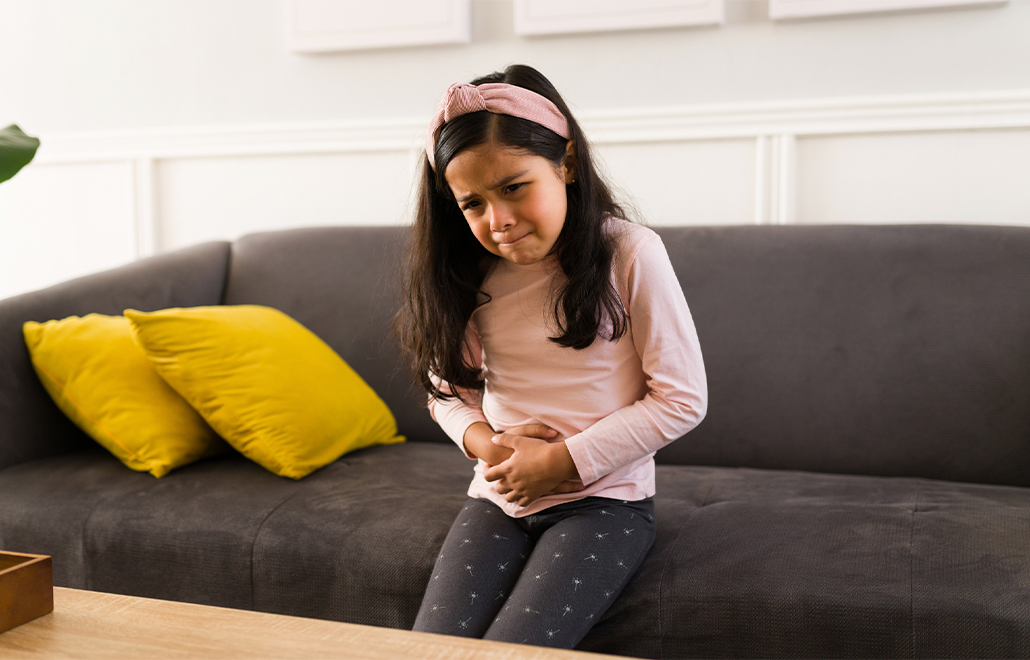
28 Jun Peptic Ulcers in Kids: What Parents Need to Know to Keep Their Children Healthy
Peptic ulcers, once thought to primarily affect adults, are increasingly being diagnosed in children. These ulcers are painful sores that develop on the lining of the stomach or the upper part of the small intestine (duodenum), typically due to a breakdown in the stomach’s protective layer or excessive stomach acid. Understanding the causes, symptoms, and treatment options for peptic ulcers is crucial for parents to ensure their children’s health and well-being.
Causes of Peptic Ulcers in Children
Peptic ulcers in children are primarily caused by two main factors:
- Helicobacter pylori (H. pylori) Infection: This bacterium is a common culprit behind peptic ulcers. It weakens the stomach’s protective mucus layer, allowing acid to damage the sensitive lining of the stomach or duodenum.
- Use of Nonsteroidal Anti-inflammatory Drugs (NSAIDs): Medications like aspirin and ibuprofen can irritate the stomach lining and lead to the development of ulcers, especially with prolonged or high-dose use.
Symptoms of Peptic Ulcers in Children
Recognizing the symptoms of peptic ulcers in children can be challenging as they may not always articulate their discomfort. Common symptoms include:
• Abdominal pain: Often described as a burning or gnawing pain, typically between the belly button and breastbone.
• Nausea and vomiting: Especially after eating or during periods of increased stomach acid production.
• Loss of appetite: Due to the discomfort associated with eating.
• Weight loss: Especially if the child avoids eating to alleviate pain.
In severe cases, ulcers can cause bleeding, leading to symptoms like dark or bloody stools, or vomiting blood, which requires immediate medical attention.
Diagnosing Peptic Ulcers in Children
Diagnosing peptic ulcers in children involves a combination of medical history review, physical examination, and diagnostic tests such as:
• Upper gastrointestinal (GI) endoscopy: A procedure where a flexible tube with a camera is used to examine the stomach and duodenum, allowing for direct visualization of ulcers.
• Blood tests: To detect the presence of H. pylori antibodies or signs of anemia due to bleeding ulcers.
• Stool tests: To check for H. pylori antigens or blood that may not be visible.
Treatment of Peptic Ulcers in Children
Treatment aims to relieve symptoms, heal the ulcer, and address the underlying cause. Depending on the diagnosis, treatment options may include:
• Antibiotics: To eradicate H. pylori infection.
• Proton pump inhibitors (PPIs) and histamine receptor blockers: Medications that reduce stomach acid production and allow ulcers to heal.
• Avoiding NSAIDs: If they are identified as the cause, alternative pain relievers may be recommended.
• Lifestyle changes: Such as eating smaller, more frequent meals and avoiding spicy or acidic foods that can aggravate ulcers.
In rare cases where complications like bleeding or perforation occur, surgical intervention may be necessary.
Preventing Peptic Ulcers in Children
Preventive measures include:
• Hygiene and food safety: To reduce the risk of H. pylori infection.
• Safe medication use: Avoid unnecessary NSAID use in children unless prescribed by a healthcare provider.
• Healthy lifestyle: Encouraging a balanced diet and stress management techniques to minimize triggers.
Peptic ulcers in children require prompt medical attention and careful management to prevent complications and ensure optimal health. By understanding the causes, symptoms, and treatment options, parents can play a crucial role in identifying and addressing peptic ulcers early. Consulting with a healthcare provider like Dr. Mona Dave is essential for accurate diagnosis and tailored treatment plans. For more information or to discuss concerns about your child’s digestive health, contact Dr. Mona Dave today.
Remember, early detection and intervention are key to managing peptic ulcers effectively and promoting your child’s overall well-being.